A line in the sand for match officials: Q&A with Cameron Tradell (Part 2)
In part 1, Patrick Skene and Cameron Tradell, who leads the Coaching and Officiating team at the Australian Sports Commission, discussed how a modern approach to educating and supporting match officials was critical to the next generation of community sports participants.
The new Community Officiating Essential Skills Course recognises the importance of match officials and sports organisations to boost capacity, retention and support.
In Part 1, Cameron Tradell said:
“We know that we’ve got a problem, and the fact is no one really likes to talk about this. It’s almost like we wait to read it in the papers before we actually act on things and that’s not good enough.
But I don’t know we’ve done enough in the way we’ve supported the officials on how to support themselves, and how to become aware of what they can do, or what their options are.
Also have we done enough to align coaching with regards to how they will uphold respect?
Have we learnt enough on Sport Integrity Australia on what is acceptable behaviour in clubs?
How have we empowered clubs to have a clear action plan as to how they will support these areas?
The truth is, I don’t think we’ve done it. So when I say a ‘line in the sand moment’, it means everything we do from now on as we move forward will be using this modern approach.
It includes a multifaceted approach to ‘let’s not blame the victims’ and let’s start to look at how we support people by placing things around them and pulling on the levers that currently exist.”
Contents
- Coaching and Officiating: Two sides of the same coin
- The standard of perfection, and nothing but perfection.
- Communicating with respect
- Put a lollipop in your mouth!
- What’s the deal outside Australia?
- Embedded practice of respect
- The great reckoning…
- The great equaliser…
- Are we already dealing with a runaway train?
- New beginnings
1. Coaching and Officiating: Two sides of the same coin
Patrick Skene: Coaches and umpires are interdependent parts of the ecosystem. They both need each other. Coaches are particularly crucial in behavioural role modelling for players, fans, parents. How can coaches do their bit to improve the situation?
Cameron Tradell: This is why we’ve developed both the officiating and coaching curriculum in tandem so there’s consistent messages on how you treat people across both courses.
Coaches play a critical key role in the way they role model and treat match officials, but also holding other people to account to respect officials.
Especially captains and players on the field, and they’ve also got an important role to play with regards to how fans and parents interact with officials.
We treat coaches and officials as two sides of the same coin, they both need to be on the same page. And that’s why we’re aligning both our education training modules to speak the same language, to talk about the same sorts of things and to talk about how they can role model their relationship to each other and really drive positive environments.
Coaches are often totally immersed in a technical and tactical role as such as their core business. How do you get them to take responsibility as a joint stakeholder in creating this positive safe environment?
I agree most coaches are in a technical and tactical mindset, and very sport driven. But I think we’re seeing more and more of a trend of coaches moving into the people business. Of understanding their athletes first and understanding different people, their behaviour, and how they interact with them.
There’s a lot more support around developing personal interaction skills, of understanding how to get the best out of their athletes.
This is also where ASC’s ‘Win Well’ strategy comes into play – if you’re focused only on the result and not on the interaction, sometimes that can be negative, it can make a negative impact on the person you’re coaching.
How do we then shift that mindset to: We can still achieve this together, but not to the detriment of the person’s health, well-being or long-term development, keeping in mind some athletes in the high performance realm are kids.
Sports like BMX, skateboarding, gymnastics and swimming have a lot of underage athletes. These sports are showcasing the value of meaningful connection with your participants, players and athletes, creating safe spaces to get the best out of them.
To be prepared mentally is the goal, but not in a way that damages the person, and coaches are seeing more value in that and that’s certainly what we’ve got a strong focus on at the ASC.
2. The standard of perfection, and nothing but perfection.
Coaches and players make hundreds of mistakes every game – yet they can’t allow match officials to make any? Why is this?
I bring this up a lot and the fact is sport is predicated on someone making a mistake. It’s interesting in cricket, when an umpire makes a mistake people blow up, yet for a game to finish in cricket there needs 20 wickets or 20 mistakes. (40 in a test match).
So, players are making mistakes all the time, but umpires are supposed to be held above that standard.
The truth is it’s an unrealistic expectation and cricket umpires are in a lose-lose situation now technology is in place. When they get it wrong, they are scrutinised, but when they get it right it is rarely said that they have done an amazing job by calling out the right decision.
It’s something we need to educate and talk to not just fans, but we need to really speak to the media with regards to how that’s perceived.
We also need to remember when someone thinks the referee got it wrong it doesn’t mean it is wrong. It’s just their view.
I would hate to see that human element removed because officials add so much value to the sporting environment by keeping that human connection and hopefully, we don’t make it so transactional.
Another issue is that we often focus on one decision in one moment, especially in contact sports, where we don’t talk about the other 79 minutes and all the other decisions that influenced the game – we talk about that one decision as the reason the game was lost.
The truth is there are lots of missed opportunities in the game and we need to look bigger than that one moment.
3. Communicating with respect
Match officials should not have to earn respect, but sadly the reality is that respect doesn’t automatically come with the whistle. How can match officials earn respect?
I think everyone should be treated with respect from the beginning and you don’t earn respect you’re treated with respect.
The truth is that’s not the way that things happen and that’s where I think we need to shift to a narrative that everyone is deserving to be treated with respect from the outset.
How important are clear communications in establishing respect for referees?
Clear, respectful, appropriate and contextually relevant communications is very important especially when there is a specific moment in time.
Then there are other times when you need to take the time with your communication and the way you communicate needs to be heavily considered.
But I don’t think that’s just a coaching or officiating or a sport piece but more a societal piece.
For example, 70% of Australia’s growth is going to come from immigration, where we’ve got new groups of people coming to this county and we’ve got a 1970s mindset of ‘this is the way it’s always been,’ then that’s not going to work.
Society has moved forward, and sports has the opportunity to amplify where this happens because we can showcase it in front of viewers.
It’s been so refreshing watching the Matildas play not just because of who the Matildas are, but the way that they hold themselves, the way that they carry themselves and I don’t think it’s any surprise they’re filling stadiums.
They’re filling stadiums, not just because of how they play but the respectful way they interact and conduct themselves.
We like that, and I think there’s been a shift to a new direction, and it engages with a much broader audience.
And you’ll find that as the ASC puts out more resources, we’ll talk about all those interactions and the requirement for treating people with dignity and respect is first and foremost.
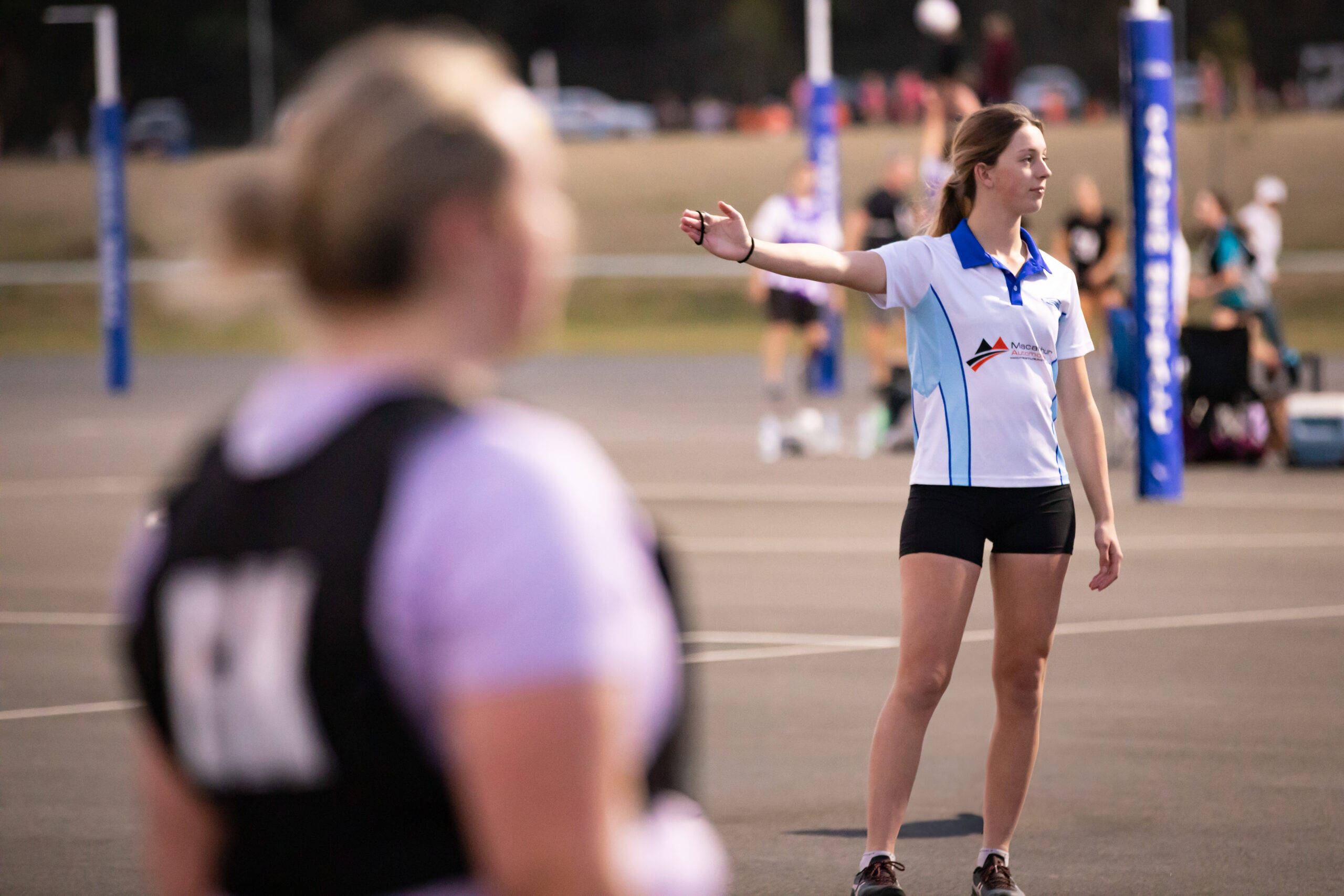
Picture: Australian Sports Commission
4. Put a lollipop in your mouth!
Poor sideline behaviour – where normally good citizens can turn into foaming, screaming verbal abusers, is a real problem. What are some of the solutions you have seen that work? Parent codes of conduct?
We’ve got codes of conduct for parents, yet we’re still here. It was a problem 10 years ago, and it’s a problem still today.
I think it comes down to the role that we can all play, and I don’t think we’ve ever really called out the role that everyone can play and where I’ve seen that really work well was a New Zealand ad campaign.
They talked about putting a lollipop in your mouth when you start to become a sideline abuser, so you stop the abuse and keep your mouth otherwise occupied.
But for some parents, there’s nothing more intimidating if someone’s highly aggressive on a sideline, screaming at a referee and doesn’t look they are going to take kindly to an interaction, people would be afraid of what the ramifications may be.
So it’s about setting the expectations at a club or an association level, having people who will then join and support you and it needs to come from not just the club but the coaches, the officials, the players all have to buy into this approach.
Ultimately the environment we create, we’ve got some responsibility because we can’t have a police officer at every single sporting event around this country. We’ve all got a role to play, and we can’t just look at it and go ‘Well, that’s over there, that’s got nothing to do with me because they’re not abusing me.’
That’s not okay. And you wouldn’t do it to someone you saw in the mall, or the bank so why do we think it’s acceptable in sport? And the truth is it’s not.
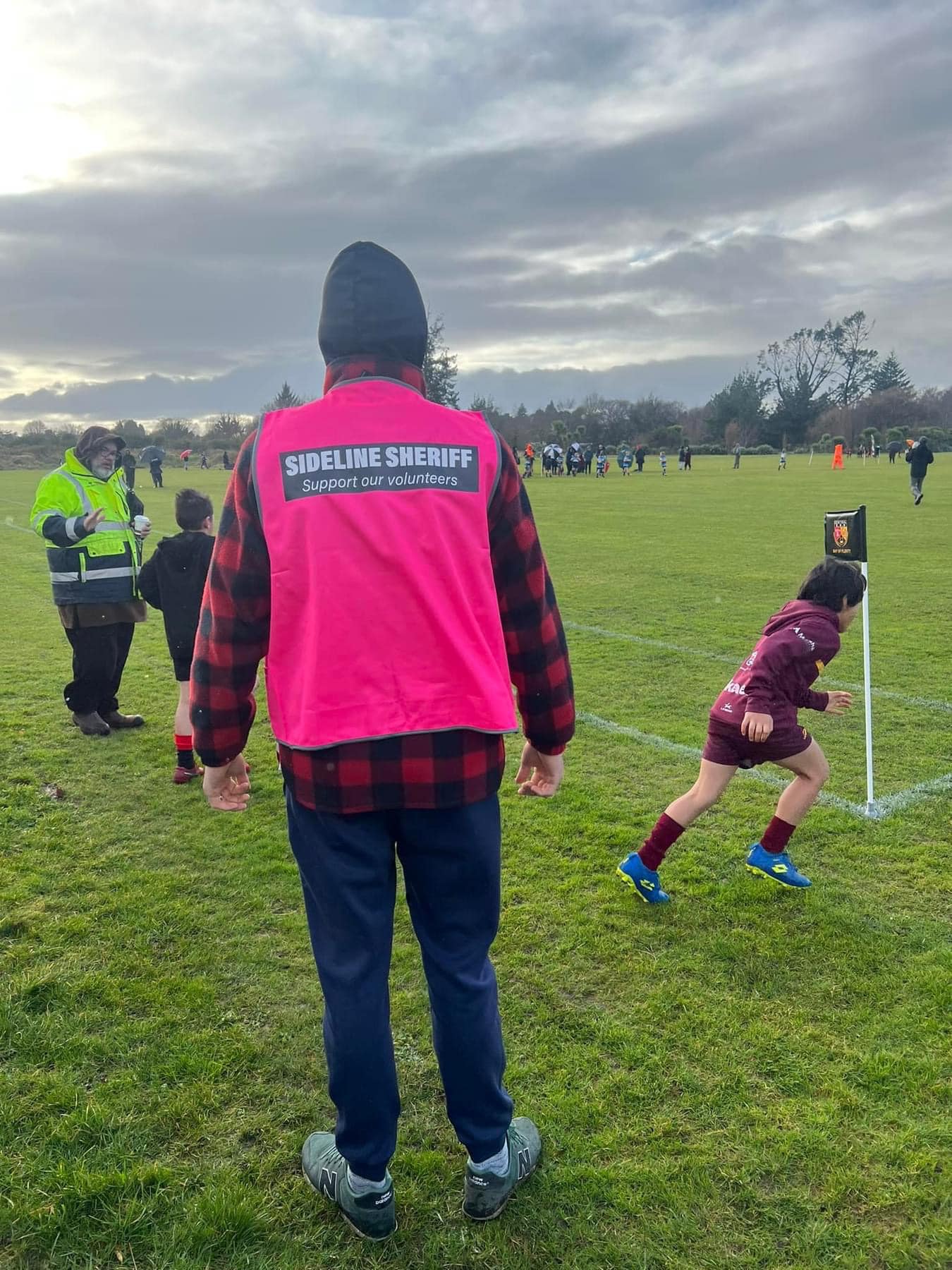
Sideline Sheriffs wearing bright pink vests and handing out lollipops are helping to crack down on bad behaviour by supporters at junior rugby games. Photo: Whakarewarewa JAB Rugby
Carl Jung once said, ‘The greatest burden a child can bear is the unlived life of the parent’. Is this a major factor in bad sideline behaviour?
That’s sadly true.
I used to find that a lot of the abuse when I was playing sport growing up, usually came from someone who was living vicariously through their child.
They were either a reasonable player or maybe not a reasonable player, but they think that they’re getting the gratification and the truth is you it’s not your journey anymore. It’s your child’s journey, let them go.
I remember playing rugby in Brisbane and feeling sorry for some of my teammates who were embarrassed by their parents.
If your child is getting amped up on what you’re doing on the sideline, it’s not actually helping them and we need to call it out.
5. What’s the deal outside Australia?
You’ve worked internationally across the world in cricket, India, Japan, Fijian – did you see different attitudes to umpires there and how did that shape your work?
In Japan definitely, where there is just a given respect for match officials because its culturally different. I remember seeing one football match official who was doing his last game and a player went up as he was walking off and took his shirt off to get one last yellow card before he was chaired off the field through the guard of honour. That gave me chills.
6. Embedded practice of respect
Rugby union is a leader in respect for match officials, particularly amongst the contact sports. You worked with Rugby Australia – what did you learn from that experience and how can other sports learn from Rugby’s culture of respect?
You’re right, rugby is a leader. I love the way some of the great rugby referees like the great Welsh referee Nigel Owens commanded respect. He knew what he was talking about, he spoke to the players with dignity – real human interactions treating each other as people first.
It’s about how do we work better together so I think there is a lot to learn there.
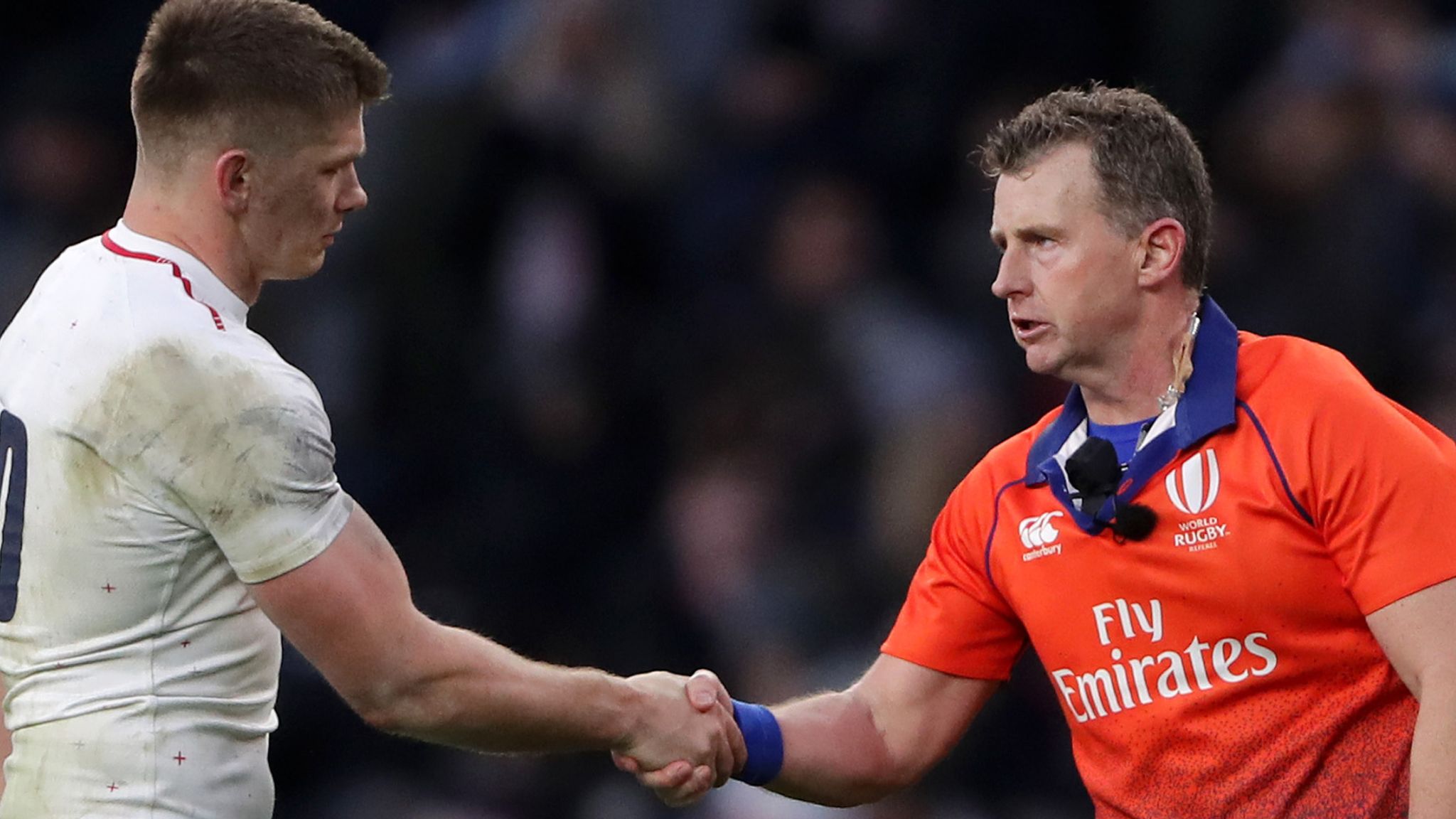
Welsh referee Nigel Owens
7. The great reckoning…
When sport was cancelled due to Covid I thought there was a chance of a reset in people valuing sport and the role of match officials. Evidence shows that abuse has gotten worse after Covid. Any thoughts on why that happened?
I don’t know whether or not it’s gotten worse or whether it’s more prevalent because it’s a focus area and it’s being reported more.
Because if I’m being honest here it’s not okay. It’s never been okay and if it’s getting worse, I see it as being of the highest priority and we need to call out the poor behaviour.
Some say that there is a wider societal increase in disrespect for authority and its logical that this will manifest in sport as disrespect. Is there any chance we can quarantine sport from these negative societal trends?
I hope so and that’s the aim. Wouldn’t it be amazing if sport could role model the way society could move with regards to treating people with dignity and respect.
If sport could showcase the way that we embrace difference and embrace difference of opinion and are able to debate sensibly with dignity and respect, have the conversations at appropriate times, support each other and understand that we’re all vital for the for the sporting ecosystem to thrive.
I genuinely see sport as its own ecosystem with regard to leading society.
It’s like a hotbed or a heightened example of where human interaction gets put to the test, where you’ve got people ‘passionate’, about their sport, under fatigue and under pressure.
All in a short timeframe, with the expectation or pressure to win. There is a really good window in sport to show how we should act in wider society.
Another thing I’d love to see change is who we focus on.
There are some professional coaches that you never see blow up. Who do we focus on? We focus on the ones that blow up.
I can’t ever remember any example where an official blew up like we see some of the coaches do in their boxes up in the grandstands.
I don’t see the officials who are down on the field making decisions in real time under real pressure blow up and lose their mind.
And I think that says something about the types of people we’ve got in officiating. They’re making their decisions and most of the time they get it right but sometimes they get it wrong and they keep their emotions in check.
8. The great equaliser…
Technology was supposed to make match officials life easier but on the contrary, systems like video replays and VAR in Australia, somehow seem to have made it worse. What are your thoughts on tech interventions?
The amount of times that I’ve watched those interventions and the officials got it right and I’ve thought to myself, ‘why aren’t we celebrating those moments?’
Why aren’t we saying that on 84% of calls, or whatever that number may be, the match official actually got it right.
They’ve actually showcased their expertise, showcased their ability to make decisions under pressure, showcased all these amazing traits. We don’t celebrate that, but we celebrate the one that they get wrong.
It showcases how much of a fine line you’re working between what’s right and wrong, keeping in mind the fans are watching something at a snail’s pace whereas the match officials are watching things at full pace. I think they’re doing a job that 99% of us couldn’t do and I think they do an exceptional job.
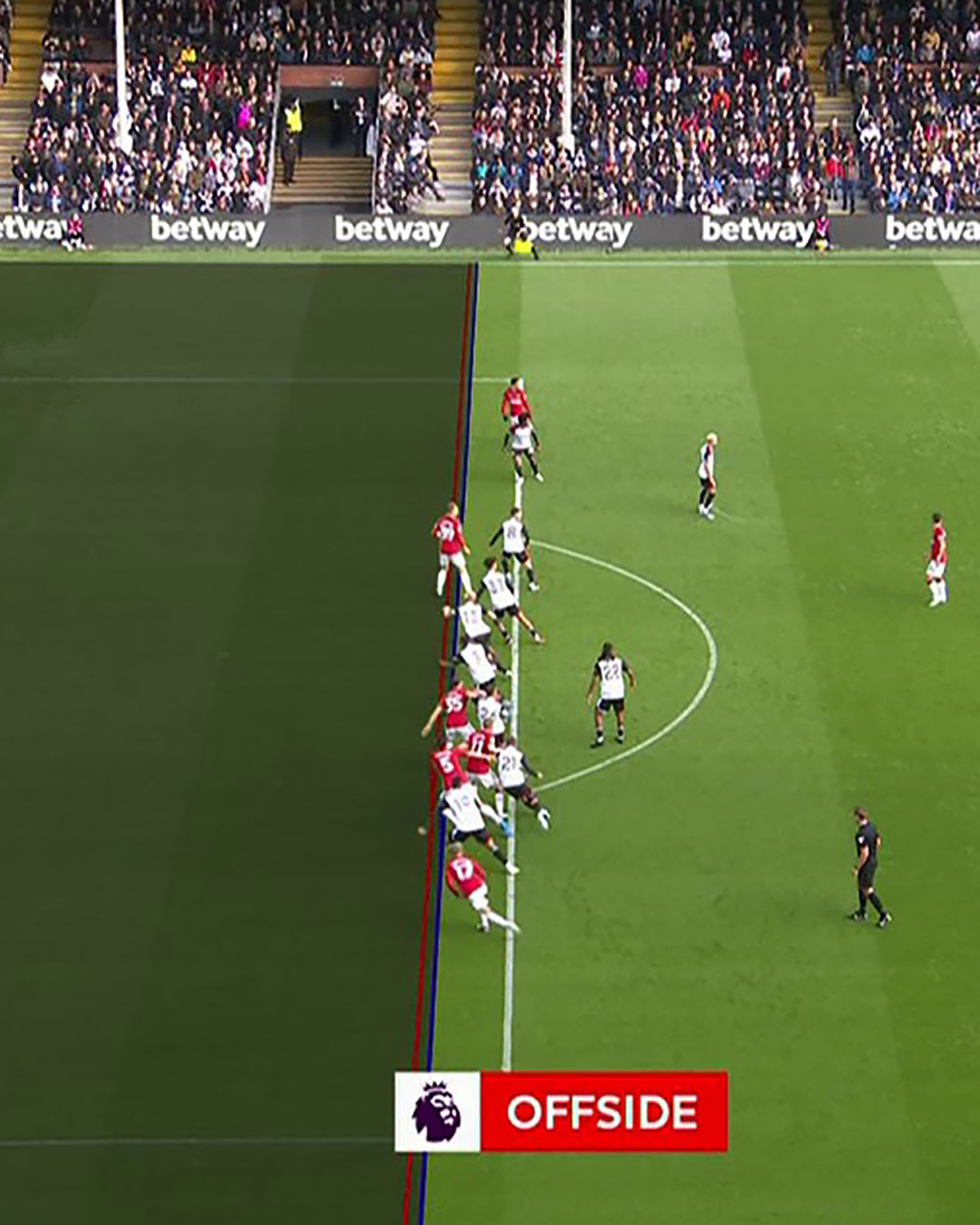
VAR technology used in football to determine the offside rule
9. Are we already dealing with a runaway train?
In America, violence and abuse of match officials is at another level which has led to mass shortages of officials and in extreme cases armed guards at tournaments, police escorts for match officials. How can we avoid that doomsday scenario?
It’s horrible to think sport could lead down to that path but early intervention is always important.
First thing you’ve got to do is admit you’ve got a problem and we admit we’ve got a problem and this is something we want to face head on.
So instead of just letting things go on to the point it snowballs to that scenario, the early interventions that we can put in place with regards to how we’re supporting the quality of the environment through the multifaceted engagements and the levers that we can pull is crucial.
We believe it won’t get to that, and if it gets to that, what a horrible place this country will have gotten to in regards to sport because that sounds horrific.
10. New beginnings
Do you have any final thoughts?
I’d like to reiterate that we are building a platform in which coaching and officiating are two sides of the same coin and that you can’t have one without the other. So if we’re talking about high quality environments, having coaches and officials on the same page is critical, and also having them showcase respect.
Having them showcase how good working relationships happen, understanding that when things go wrong, sometimes it goes wrong through our own lens.
And we can’t continue to excuse poor behaviour based on the guise or under the umbrella of ‘I’m passionate’, because we’re all passionate. Sport is about winning, but it’s about winning with integrity, respect.
That’s why I love the Win Well strategy at the AIS because it’s not just about winning at all costs. It’s about winning with a lot of other factors and the main factor is that everyone feels psychologically safe.
We’re literally focusing on the fact that these coaching and officiating approaches are critical, they’re equally important and should get equal focus with regards to how we create great environments.
Join the Club Respect mailing list
Also by Patrick Skene:
Feature article: Sport’s ugly blind spot – abuse of officials
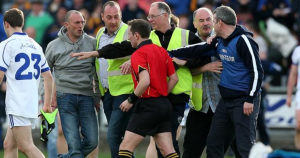

Patrick is a founder of Cultural Pulse, a leading multicultural marketing and engagement agency that has worked for the past 15 years on sports participation and fan engagement programs for over 100 communities. He is an author and both of his books ‘The Big O, The Life & Times of Olsen Filipaina‘ and ‘Celestial Footy – The Story of Chinese Aussie Rules‘ have gone into reprint. As a storyteller, his stories on the intersection of sport, history and culture have been published by The Guardian Australia, The Age, the Sydney Morning Herald, The Australian, The Daily Telegraph and The Australian Financial Review. He is passionate about celebrating the role of match officials in sport and is currently the proud coach of the Rockdale Raiders Under 6 Intermediate mixed football team.